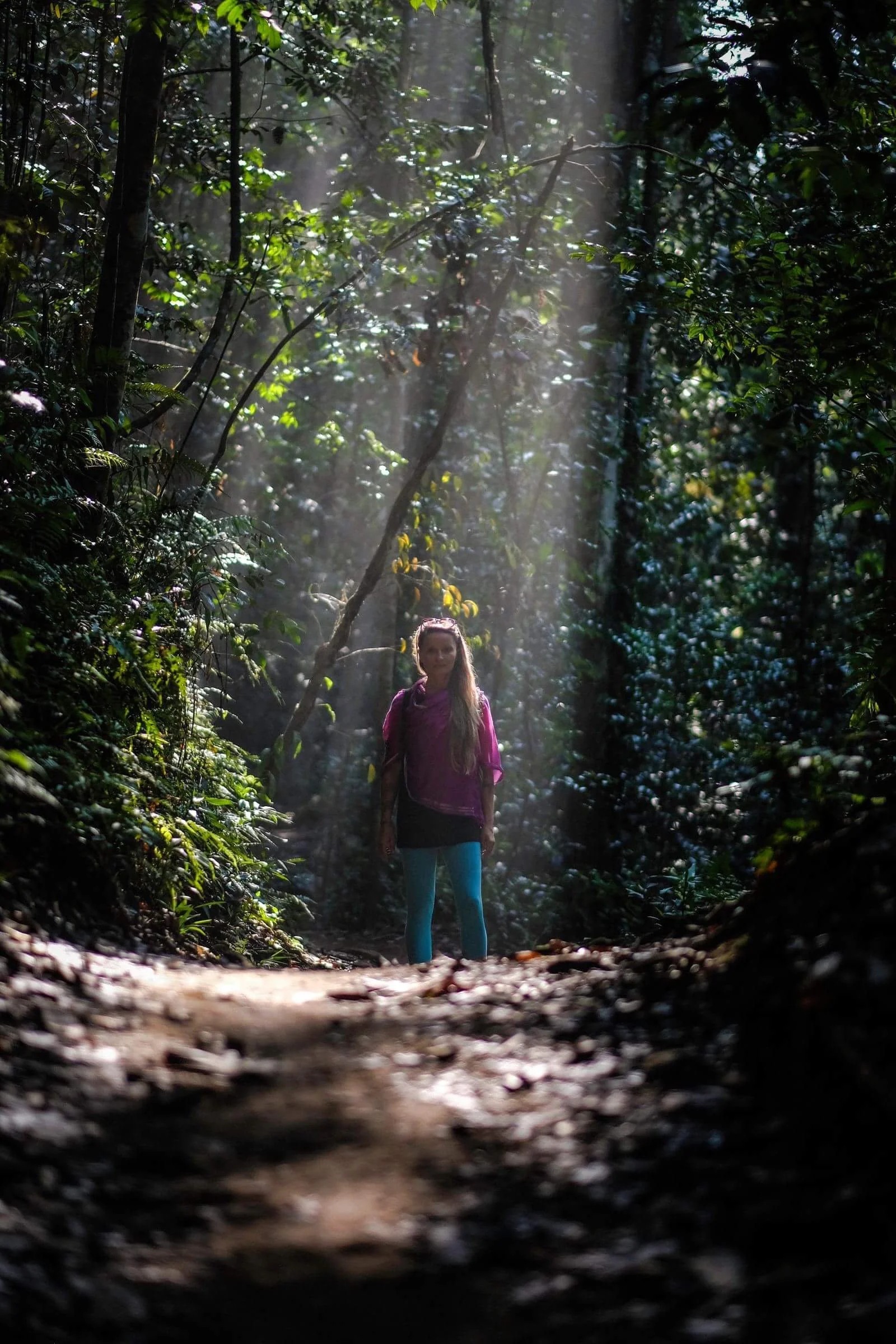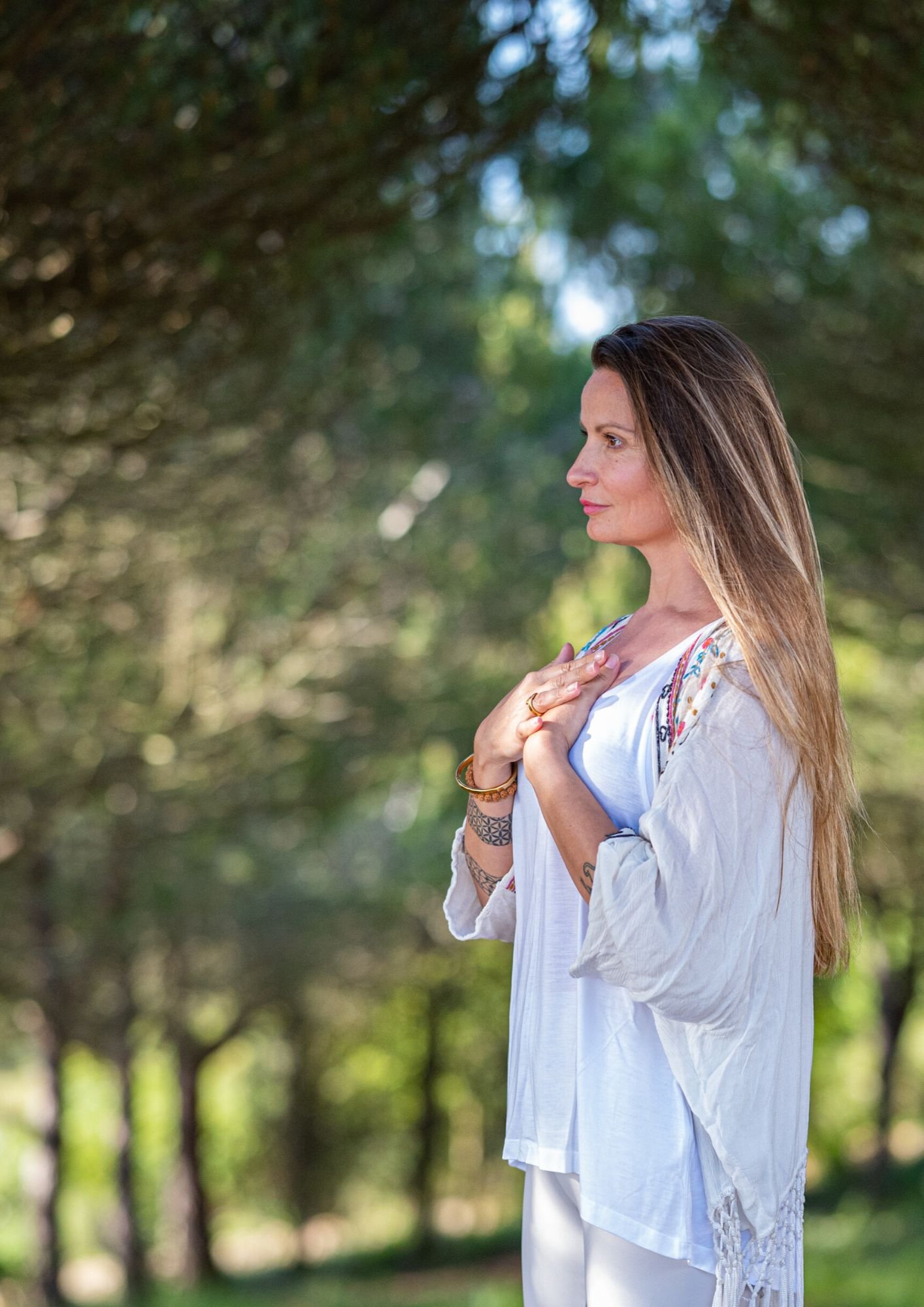The appearance of Deepak Chopra in the Epstein files has been met with a familiar mixture of surprise, outrage, and attempts at contextualisation. At the same time, for many women who have spent years inside spiritual and wellness spaces, none of it is shocking because this pattern is so well known. The recurring proximity between spiritual authority, elite power networks, and a striking lack of ethical self-examination is not new. Chopra’s presence in those documents feels less like an anomaly and more like another story of harm and blurred ethics in wellness and yoga cultures.
How Emotions are Embodied - A Neuroscientific and Somatic Perspective
In yoga and somatic spaces, the body is often described as a place where emotional experience is not only felt, but also held. Phrases such as “releasing stored emotions” are commonly used, and they reflect an important insight: emotions are not purely mental; they are lived and expressed through the body. At the same time, these phrases are often understood literally, turning metaphor into firm belief. For instance, language around “stored emotions” in a specific place in the body can create the assumption that emotions are hidden in specific tissues rather than being processes that involve the whole organism. In this post, I will unpack some common misconceptions and offer a more neuroscientific and somatic perspective on emotional embodiment.
When Yoga Teachers Overreach - Psychotherapy in Yoga Spaces
The recent article in The Independent titled “Dance teacher wins payout after yoga course triggers emotional breakdown” has understandably sparked strong reactions in some yoga teachers and communities I am connected with. It's a good illustration of what can happen when yoga teachers introduce psychological processes they are not trained to handle, or are trained to handle but shun the responsibility to deal with the reactions they provoke. As someone who has taught Trauma-Sensitive Yoga Teacher Training courses for years and has written a book on the subject, I found the story unsurprising, but still deeply concerning. It mirrors patterns I am familiar with in the yoga world, especially in the last years, where teachers are crossing boundaries, misusing practices, oversimplifying the complexity of the human psyche, and venturing into terrain that belongs to trained mental health professionals. The result of this case of blatant disregard for professional responsibility and ethical boundaries was heartbreaking. I can only hope that the person in question will find a way to heal.
Fitness and Nutrition for Women’s Physiology
Lately, I’ve been diving deep into fitness and nutrition through the lens of female physiology, tracking my cycle, tuning into changes in energy and performance, and preparing for the shifts that come with perimenopause, which is soon approaching. This journey has led me to explore research, expert insights, and real-world strategies tailored specifically to women.
The Neuroscience of Change or How to Rewire Your Brain
One of the reasons I’m drawn to neuroscience is that it bridges the gap between the brain, the body, and our lived experience. It offers a language to explain why we think, feel, and behave the way we do and, more importantly, how we can change. For me, understanding the nervous system has been a turning point in my growth, and professionally, it’s one of the foundations of how I support others. In therapy, I utilise a range of tools, including body-based approaches and mindfulness, as well as cognitive techniques such as those employed in CBT (Cognitive Behavioural Therapy). What unites them all is that they work with the brain’s natural ability to adapt and rewire, known as neuroplasticity. When we understand this concept, change stops feeling abstract or impossible and becomes something practical, visible, and empowering.
A Woman's Journey to Safety
The following story is about a trip home I took during the pandemic, but it serves to illustrate a bigger subject - feeling safe in the world, especially as a woman. I promised to write it years ago and never got around to it. A student friend reminded me recently, and I felt today, on International Women’s Day, was the perfect time to reflect. Please note that I mention some statistics that some might find triggering. So, here it goes...
Yoga in a Divided World
Even though I stay well-informed about global events, including politics, and often discuss these topics in my personal life, I usually avoid bringing them into platforms I use for work, including social media, or blog posts, unless I feel it’s important. A conversation with a new friend, a fellow yogi and self-described “refugee from the US” reminded me that this is one of those times, and inspired me to share some thoughts. She expressed heartbreak over what she sees as the slow erosion of democracy and equality in her country and how many in the yoga community contributed to it. “That’s what hurts the most,” she said. I have to say I agree and am worried about the future.
Living from the Essential Self: The Path to True Liberation
We start to be conditioned from the moment we are born. Before we even draw our first breath, we are labelled without choice— our gender determined, our name given, and our religion and social status inherited from our family. As we grow, this conditioning continues through cultural norms, societal expectations, and the stories we are told about who we are and should be. But it doesn’t stop there. Our experiences, both joyful and painful, add new layers to this conditioning. For instance, traumas leave deep imprints on our psyche, shaping how we see ourselves and the world, often creating limiting beliefs or protective patterns that are difficult to unravel.
Emotional regulation
Emotional regulation is an important skill for our overall mental health and the health of our relationships. This is why I included emotional regulation tools in Spanda Institute's 300-hour Yoga Therapy training; understanding emotions and tools for emotional regulation is essential for teachers and therapists (and humans in general). In this blog, I want to shed some light on what emotional regulation is and what it isn't and share some tools and strategies you can use.
Understanding Adult Attachment Styles - a key to understanding relationships
Adult attachment theory is a tool for a better understanding of ourselves and others. Learning about ourselves and becoming more aware is a crucial first step in understanding how we typically respond to closeness, intimacy, and emotional needs in relationships. It is not a perfect tool, as we are complex beings, but it is a good start when it comes to relationships, both romantic and other. And we know that good, honest relationships are essential for our well-being and happiness. This is the second part of the attachment series. The first, available here, was an intro to this subject. In this post, I will discuss the importance of understanding attachment styles and cover each in detail. In the next, I will focus on the dynamics of different combinations of attachment styles.
The importance of perspective-taking
While, for many, the holiday season is all about joy and happiness and (re)connecting, it brings anxiety and stress for some. This happens for many reasons, including spending time with friends and family we don't often see eye to eye. A spiritual teacher, Ram Dass, once said, 'If you think you're enlightened, go and spend the week with your family.' Still, the challenges are often opportunities to learn and change. Last year, I wrote about ‘navigating the holiday season using Buddhist principles’. This year, I will focus on a more contemporary type of wisdom offered by Social Psychology and the theory of perspective-taking.
What is Trauma-Sensitive Yoga and why is it important?
Trauma seems to be a buzzword in yoga and wellness circles lately, with various modalities, from movement and breathwork to chanting and various ceremonies, advertised as trauma healing. However, can trauma be something we can move, breathe, sing or dance out? Of course, it is not that simple. When it comes to something as complex as trauma, there are no one-size-fits-all solutions. While a particular asana, breathing pattern, or any other practice or technique might be healing for one person, it can be triggering for another.
The science of breath - hyperventilation
We can all agree that breathing is essential and one of the most important life-sustaining functions, if not the most important. We can go without eating, drinking and sleeping for days and only minutes without breathing. Besides the apparent gas exchange function, breathing also regulates our pH and can quickly influence our autonomic nervous system. Thus, knowing how to breathe well can positively affect our health and well-being, decrease stress and increase our mental and physical performance. When done well, altering our natural breathing pattern, which is what we do when practising pranayama or other breathwork techniques, can be very beneficial. However, altering our breathing patterns can be detrimental if the technique is not for us, is too advanced, or is based on misconceptions and pseudoscience.
Why we all need to become climate activists
We have been warned about the effects of global warming for a few decades now. Still, nothing much changed, and we continued to live and consume as before. There is a glimpse of positive changes, but not close to what we need to change things around. The events we are witnessing around the globe have a clear message – we must wake up from this ‘business as usual’ dream. It is very evident now that our unsustainable lives impact the planet and our future.
The long-lasting affects of Childhood Trauma
The Adult Attachment Theory
While working in a Child Guidance Clinic in London, a British psychologist, psychiatrist, and psychoanalyst John Bowlby had the opportunity to observe the behavior of babies and children separated from their caretaker, or what he called attachment figure. Based on his research and findings, in 1958, he proposed the theory of Attachment.
Tools for growth
In the past month, I had one-on-one consultation sessions with my 300-hour YTTC graduates. Instead of having a long lecture about where to go from here for everyone, the idea was to discuss each unique situation. I believe it was helpful for them, but it also made me realise that most of us (yes, I include myself as this was me before) are reluctant to promote ourselves.
The importance of trust
Trust is the most important element of any relationship; romantic, family, friendships, business partnerships and interactions with strangers, as well as our relationship with institutions and governments. Trust is also a foundation of cooperation in any mentioned relationship and this is the key. No trust = no cooperation.
Anxiety-Free part 2
This is the 2nd part of the Anxiety free post in which I will be focusing on prevention or things you can do to have more calm and less anxiety in your life. But first, a bit of science that forms the base of the prevention tips below. One thing all anxiety disorders have in common is our body’s reaction to them, or rather the stress response they trigger so I will touch upon that very briefly (and much more in detail in one of the video lectures coming up soon!).
Anxiety Free - part 1
Mental health has never been so fragile for so many as it is today, yet perhaps never as important for our survival. This statement may sound dramatic, but to heal everything that’s wrong with this world we have created, starting with the global warming crisis we’re facing, we need to heal the individual first. Division, anger and fear (often wearing many discuses) we see so much evidence of, comes from pain, or rather protection patterns and unresolved trauma.





















